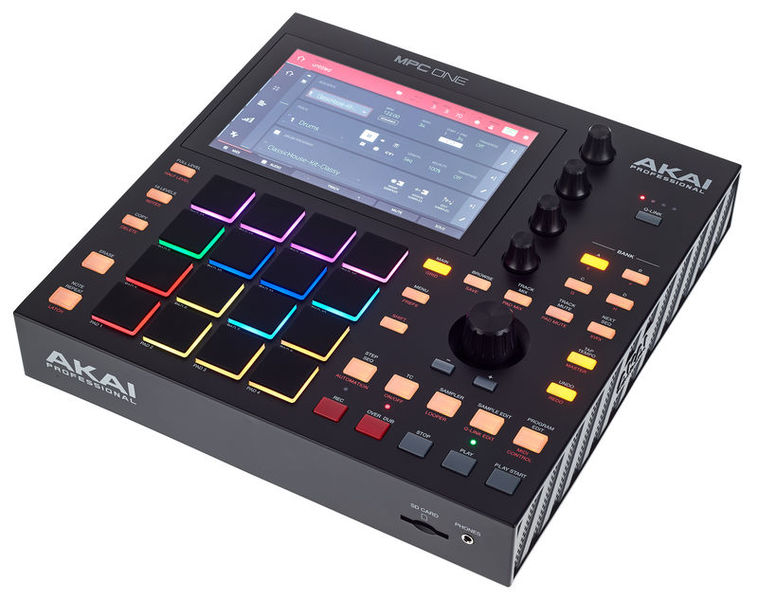
There’s a record volume control on the hardware for sampling, a master volume out control, headphone port and MIDI in and out 1/8 inch jacks. The rear of the unit contains audio in and out as mentioned, as well as USB which will send audio and MIDI to and from the computer. Just connect to your Mac or PC over USB (which you’ll need to do anyway) and route audio from there, either via the standalone MPC software app or running it as a plug-in inside your DAW. The software can run at up to 96 kHz and you can, of course, use a third-party interface too, if you have a higher quality one already. It actually contains a two-channel audio interface as well, for sampling in and playing sound out, though it’s locked to 44.1 kHz, at least unless this changes in an update. It needs to be PSU-powered (that screen requires more than bus power can provide) but that’s not a surprise in a serious device. The new MPC Studio is available on Reverb now.The hardware unit feels very well built and is solid but portable, finished in rubberized black plastic and with a red metal base. All of these standalone MPCs can run Akai's latest software and firmware-which offers a ton of virtual instruments, effects, and sound packs-so the real deciding factors are price and speaker/connectivity options.įollow the links to find all those MPCs and more on Reverb. The recently discontinued MPC Live is a great value on the used market, while the updated MPC Live II is a powerhouse with built-in speakers and expanded connectivity options. If you want to ditch the computer and create music with a standalone MPC instead, there are many options to consider: The MPC One is the cheapest standalone unit but is a complete, full-featured MPC (also available in Retro and Gold editions).

Key specs of the new MPC Studio, according to Akai, include: But the software also includes audio track recording, vocal effects plugins, a drum synth, mixing and mastering processors, and other tools you can use to flesh out and finish your productions. Focused on making beats, it offers beloved MPC functions like Akai's unique time-stretching and pitch-shifting of samples. With MPC 2 Desktop, you get virtually the same software that is included on standalone MPCs like the MPC One. Akai's full overview video for the new MPC Studio


 0 kommentar(er)
0 kommentar(er)
